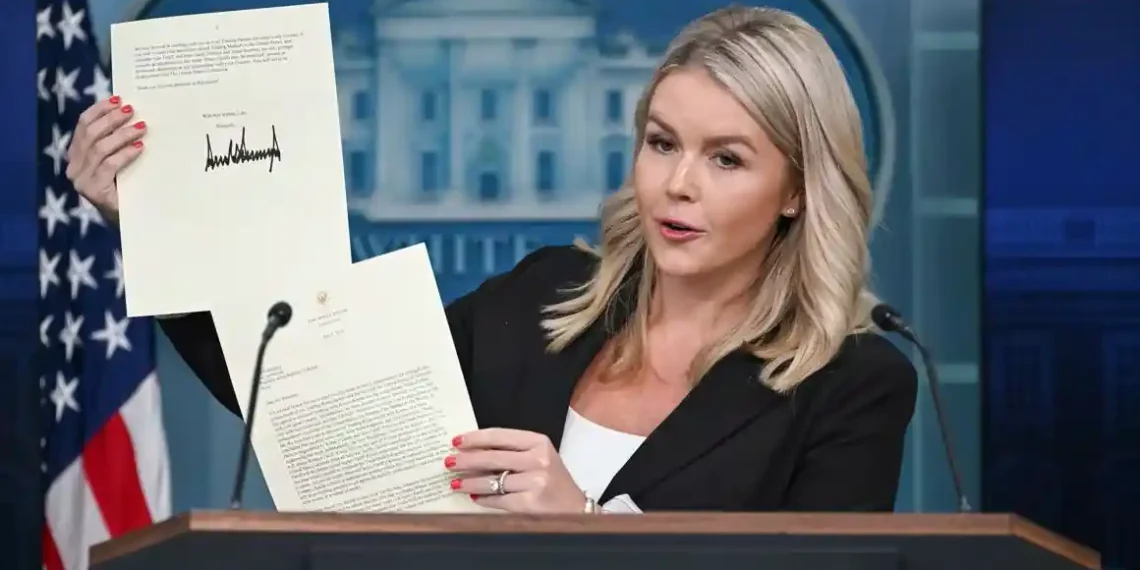Trump Unveils Tariffs Up to 40% on 14 Nations, Extends Deadline for Trade Talks
White House Announces Sweeping Trade Action with August 1 Extension for Most Countries
WASHINGTON — Former President Donald Trump has intensified his campaign to reshape global trade, announcing new tariff rates of up to 40% on 14 countries while granting a short-term reprieve to negotiate.
The tariffs, initially slated to take effect July 9, will now be delayed until August 1—except for China, which remains subject to the original deadline. Trump signed an executive action Monday formalizing the delay for “reciprocal” tariffs, aimed at penalizing nations with significant trade surpluses against the United States.
“We’re firm, but not 100% firm,” Trump said of the new timeline during a White House dinner, signaling room for negotiation if countries approach with alternative proposals.
Countries Facing Higher Tariffs
Letters signed by Trump were delivered Monday to leaders of Japan and South Korea—America’s sixth- and seventh-largest trading partners—informing them of upcoming 25% tariffs. Both countries said they would pursue further negotiations with the U.S., with Japan specifically citing hopes for a bilateral agreement.
Trump also announced tariff hikes for 12 additional countries, including Malaysia, Kazakhstan, South Africa, Myanmar, Laos, Tunisia, Bosnia and Herzegovina, Indonesia, Bangladesh, Serbia, Cambodia, and Thailand. Tariffs for some of these nations will climb as high as 40%.
In all 14 letters, Trump justified the tariffs by citing trade deficits and foreign policies that he said impede U.S. exports. He encouraged leaders to relocate manufacturing to the United States to avoid penalties.
“These tariffs are about fairness,” Trump said. “If they retaliate, we’ll go higher.”
Sector-Specific Tariffs Remain Separate
White House officials clarified that the new tariffs are distinct from existing sectoral tariffs, such as the 25% duty on automobiles. This means importers won’t face compounded penalties on top of current industry-specific levies, although Trump warned additional measures remain on the table if nations retaliate.
Despite ongoing tensions with the European Union, the bloc was not included in Monday’s round of tariff notices. EU officials confirmed they had not received a letter but welcomed the pause, with Irish Foreign Minister Simon Harris suggesting the delay opens the door for a “mutually beneficial” agreement.
Global Reactions and Diplomatic Pushback
Many affected nations welcomed the deadline extension and expressed hope for continued negotiations.
Japan’s Prime Minister Shigeru Ishiba called the decision “regrettable” but affirmed Tokyo’s commitment to a trade deal. South Korea’s finance ministry said it would monitor markets closely and “take immediate action” if instability escalates.
Thailand, facing a 36% tariff, said it had submitted a proposal to Washington “in good faith.” South Africa, which faces a 30% levy, challenged the accuracy of U.S. trade data and called on domestic businesses to diversify exports. Malaysia also confirmed it would continue dialogue with the U.S.
Responses from Indonesia, Cambodia, Myanmar, Kazakhstan, and Bangladesh were not immediately available.
What’s at Stake: Billions in Trade and Consumer Prices
The 14 countries targeted in Monday’s letters shipped a combined $465 billion worth of goods to the U.S. last year, according to the Commerce Department. Japan and South Korea alone accounted for $280 billion—60% of that total.
Top U.S. imports from these nations include semiconductors, automobiles, apparel, pharmaceuticals, and industrial machinery. Economists warn the tariffs could trigger supply chain disruptions and higher consumer prices if negotiations fail.
Notably, South Africa supplies half of U.S. platinum imports, while Malaysia is a major source of semiconductors. Bangladesh, Indonesia, and Cambodia are key players in America’s clothing and accessories market.
Market Reaction: Stocks Slide as Tariff Worries Mount
U.S. markets responded negatively to the announcement, with the Dow Jones Industrial Average falling 422 points (0.94%). The S&P 500 and Nasdaq Composite dropped 0.79% and 0.92%, respectively—marking their worst performance in three weeks.
Automaker stocks were hit especially hard amid concerns over future auto tariffs. Shares of Toyota, Nissan, and Honda declined by 4%, 7.16%, and 3.86%, respectively.
While Trump has stated that sector-specific duties won’t stack on top of the new tariffs, fears persist that retaliatory trade measures could reignite broader trade wars.
“These tariffs may be modified, upward or downward, depending on our relationship,” Trump noted in the letters, keeping the door open for further escalation or retreat.
This article was rewritten by JournosNews.com based on verified reporting from trusted sources. The content has been independently reviewed, fact-checked, and edited for accuracy, neutrality, tone, and global readability in accordance with Google News and AdSense standards.
All opinions, quotes, or statements from contributors, experts, or sourced organizations do not necessarily reflect the views of JournosNews.com. JournosNews.com maintains full editorial independence from any external funders, sponsors, or organizations.
Stay informed with JournosNews.com — your trusted source for verified global reporting and in-depth analysis. Follow us on Google News, BlueSky, and X for real-time updates.














